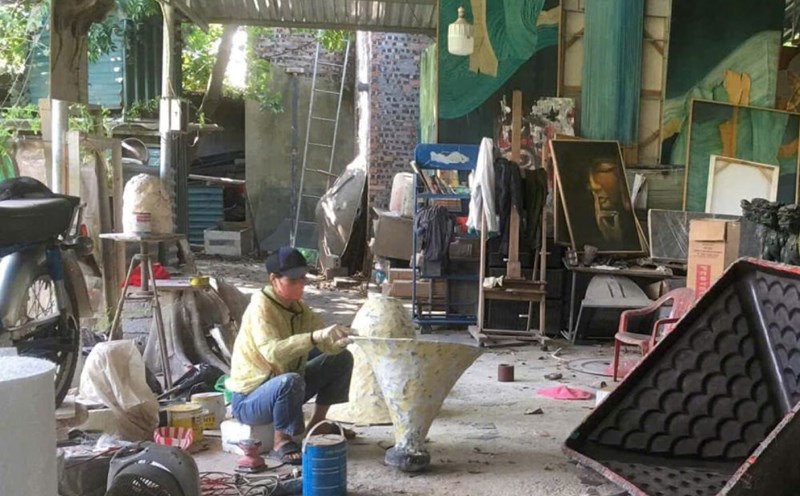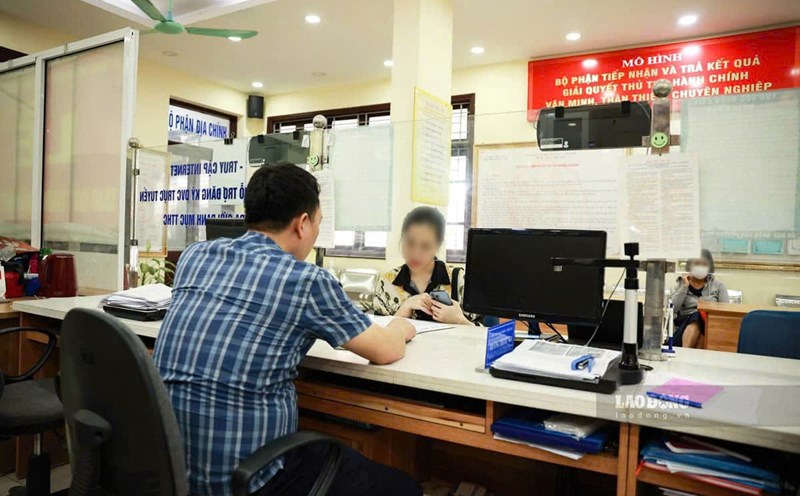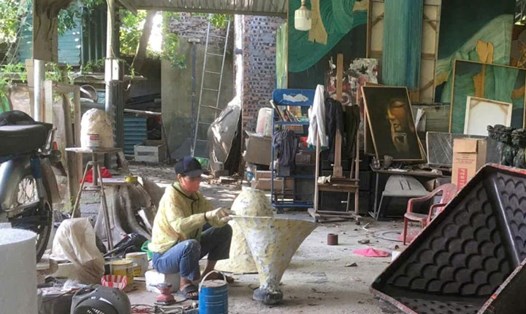After finishing work in Thang Long Industrial Park (Kim Chung commune, Hanoi), Ms. Hoang Thi Ngan hurriedly took a motorbike to pick up her children and bring them to a rented room of about 25 square meters.
Originally from Phu Tho, a worker far from home for more than 8 years, Ms. Ngan and her husband have worked part-time, with a total income of about 16-18 million VND/month. This income is enough to cover the expensive life in the city if you know how to save money and make ends meet.
"The rent is 1.8 million VND/month, the electricity and water are an additional 500,000 VND/month, the cost of food, travel, and education for the two children, everything must be carefully calculated. Each month, the cost of tuition, boarding, books and additional skills for the children alone also costs nearly 4 million VND" - Ms. Ngan said.
Therefore, when hearing the news that from the 2025-2026 school year, public primary school students in Hanoi will be exempted from tuition fees and boarding meals for 20,000 VND - 30,000 VND/day (depending on the area), Ms. Ngan could not hide her emotions.
The female worker calculated that next school year she will be exempted from tuition fees and receive food support. Each month, her family can help with the payment of nearly 2 million VND/month for 2 primary school children.
In the context of no increase in income, no other source of income, being exempted from tuition and food fees helps the couple feel like they are relieving many burdens.
According to the resolution recently approved by the Hanoi People's Council, about 768,000 primary school students will be supported from this policy. Of which, more than 707,000 students are studying in public schools. The support period is in the 2025-2026 school year (according to the actual number of days of meals, not exceeding 9 months/school year).
For the children of workers, the unskilled labor force accounts for a large proportion of the capital's labor force, this is a significant change, helping to somewhat remove financial difficulties for low-income families.
Not only Ms. Ngan, many workers raising young children also feel "double joy" in the series of policies to care for children and workers.
Mr. Nguyen Van Trinh - a construction worker in Hoang Mai - said that he once planned to send his child back to his hometown to study because he could not afford to pay for school and living expenses in Hanoi.
With tuition exemption and additional boarding support next year, he realized that Hanoi is gradually becoming a true place to live for workers like himself.
According to the latest survey conducted by the Vietnam General Confederation of Labor, more than 53.3% of workers said that wages only partially (over 50%) meet the demand for children's education. This clearly reflects that the cost of education is still a large financial burden, especially for low-income people.
Timely support such as tuition exemption and boarding support are practical policies, bringing direct and long-term benefits to hundreds of thousands of workers' families.
"As a worker from other provinces, living in the capital is expensive and crowded. The attention of practical policies like this makes us feel more motivated to continue to stick with work and the city" - Ms. Ngan expressed.











